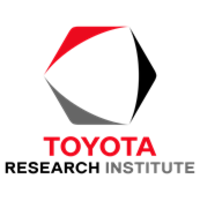The role involves full lifecycle ownership of HMI applications, including design, integration, validation, and collaboration with multi-functional teams.
At Toyota Research Institute (TRI), we’re on a mission to improve the quality of human life. We’re developing new tools and capabilities to amplify the human experience. To lead this transformative shift in mobility, we’ve built a world-class team in Automated Driving, Energy & Materials, Human-Centered AI, Human Interactive Driving, Large Behavior Models, and Robotics.
The Human Interactive Driving team seeks to accelerate the path to building a much more intelligent vehicle that places humans at the center of a more evocative and safer driving experience. Under the Driving-Sensei concept, we research AI-based interactions to unlock a person’s full driving capability while simultaneously making driving safer and more enjoyable.
We are looking for a software engineer to join the Human Machine Interaction Research (HMIR) team to work on our Driving-Sensei project. You’ll collaborate closely with multi-functional teams, spanning AI research, UX design, and vehicle systems engineering. You will translate future-facing research into integrated, testable, and demonstrable HMI experiences within real vehicle prototypes and development platforms. This role is instrumental in owning and delivering our full HMI application—from early research integration to end-to-end performance, stability, and usability within experimental vehicle platforms.
Responsibilities
- Be responsible for the full lifecycle of the HMI application, from architectural design and software integration to performance tuning and in-vehicle validation.
- Specify and implement a full stack SW architecture that integrates vehicle telemetry data, human-machine interface (HMI) hardware (physiological sensing, touch displays, audio, AR headsets), machine learning (ML) models, LLMs, and 2D UIs.
- Work closely with vehicle HW engineers to integrate SW architecture onto vehicles.
- Collaborate with front-end SW engineers and designers to integrate UX code into the system.
- Integrate and modify existing research code that comprise key components of the system.
- Lead the effort to coordinate and restructure research code into modular, stable and well-documented functions.
- Establish continuous integration, test, and deployment automation for software releases (CI/CD).
- Deploy the SW system in-vehicle at a real race track, provide debugging support, and train UX researchers to operate the system independently during user studies.
- Contribute to documentation and information exchange among engineering and research teams.
- Review and guide others in writing clean and maintainable code.
- Manage the overall timeline for system development delivery and work closely with technical program manager to ensure milestones are achieved.
- Work on-site at our Los Altos office and travel monthly to a race track for vehicle testing.
Qualifications
- Master’s degree in Computer Science, or related field, with 5+ years of industry experience.
- Deep understanding of C++ and Python toolchains.
- Deep understanding and hands on experience with ROS2 framework.
- Strong understanding of Linux-based development, containerization (e.g., Docker), and system-level debugging tools.
- Consistent track record to navigate and integrate large codebases and research prototypes into complex systems.
- Demonstrated experience owning and delivering sophisticated applications or subsystems in production-like environments.
- Experience with UI development, including web-based interfaces or using game engines (e.g., Unity, Unreal Engine).
- Ability to design, deploy, and manage systems in cloud environments (e.g., AWS, GCP, Azure).
- Ability to communicate complex concepts clearly across different audiences.
- Have a high level of initiative and self-motivation, work without direct supervision.
Bonus Qualifications
- Experience developing mobile apps with cloud integration and interfaces to vehicle systems.
- Experience working with or training machine learning models (e.g., model optimization, pipelines, MLOps).
- Experience deploying SW on vehicle platforms or other complex HW systems.
- Experience working in a research environment.
- Experience deploying SW in the field.
The pay range for this position at commencement of employment is expected to be between $180,000 and $270,000/year for California-based roles; however, base pay offered may vary depending on multiple individualized factors, including market location, job-related knowledge, skills, and experience. Note that TRI offers a generous benefits package (including 401(k) eligibility and various paid time off benefits, such as vacation, sick time, and parental leave) and an annual cash bonus structure. Details of participation in these benefit plans will be provided if an employee receives an offer of employment.
Please reference this Candidate Privacy Notice to inform you of the categories of personal information that we collect from individuals who inquire about and/or apply to work for Toyota Research Institute, Inc. or its subsidiaries, including Toyota A.I. Ventures GP, L.P., and the purposes for which we use such personal information.
TRI is fueled by a diverse and inclusive community of people with unique backgrounds, education and life experiences. We are dedicated to fostering an innovative and collaborative environment by living the values that are an essential part of our culture. We believe diversity makes us stronger and are proud to provide Equal Employment Opportunity for all, without regard to an applicant’s race, color, creed, gender, gender identity or expression, sexual orientation, national origin, age, physical or mental disability, medical condition, religion, marital status, genetic information, veteran status, or any other status protected under federal, state or local laws.
It is unlawful in Massachusetts to require or administer a lie detector test as a condition of employment or continued employment. An employer who violates this law shall be subject to criminal penalties and civil liability. Pursuant to the San Francisco Fair Chance Ordinance, we will consider qualified applicants with arrest and conviction records for employment.
Top Skills
AWS
Azure
C++
Docker
GCP
Linux
Python
Ros2
Unity
Unreal Engine
Similar Jobs
Artificial Intelligence • Productivity • Software • Automation
As a Senior Software Engineer, you will build and maintain backend systems and integrations focusing on AI-powered automation and tools, enhancing observability and reliability for Zapier's workflows.
Top Skills:
AWSDatabricksDatadogDjangoGrafanaJavaScriptKafkaMySQLPostgresPrometheusPythonSqsTypescript
Artificial Intelligence • Computer Vision • Hardware • Robotics • Metaverse
The role involves integrating NVIDIA solutions into engineering workflows, developing Omniverse Kit-CAE functionalities, and collaborating with customers and ISVs to advance industrial engineering solutions.
Top Skills:
C++Kit-CaeNvidia OmniversePython
Aerospace • Hardware • Software • Transportation
The Sr. Software Integration Engineer ensures system safety and airworthiness, leading integration efforts among software, hardware, and flight operations. Responsibilities include driving test readiness and supporting flight test campaigns.
Top Skills:
Data ManagementPythonTest Infrastructure
What you need to know about the Los Angeles Tech Scene
Los Angeles is a global leader in entertainment, so it’s no surprise that many of the biggest players in streaming, digital media and game development call the city home. But the city boasts plenty of non-entertainment innovation as well, with tech companies spanning verticals like AI, fintech, e-commerce and biotech. With major universities like Caltech, UCLA, USC and the nearby UC Irvine, the city has a steady supply of top-flight tech and engineering talent — not counting the graduates flocking to Los Angeles from across the world to enjoy its beaches, culture and year-round temperate climate.
Key Facts About Los Angeles Tech
- Number of Tech Workers: 375,800; 5.5% of overall workforce (2024 CompTIA survey)
- Major Tech Employers: Snap, Netflix, SpaceX, Disney, Google
- Key Industries: Artificial intelligence, adtech, media, software, game development
- Funding Landscape: $11.6 billion in venture capital funding in 2024 (Pitchbook)
- Notable Investors: Strong Ventures, Fifth Wall, Upfront Ventures, Mucker Capital, Kittyhawk Ventures
- Research Centers and Universities: California Institute of Technology, UCLA, University of Southern California, UC Irvine, Pepperdine, California Institute for Immunology and Immunotherapy, Center for Quantum Science and Engineering



